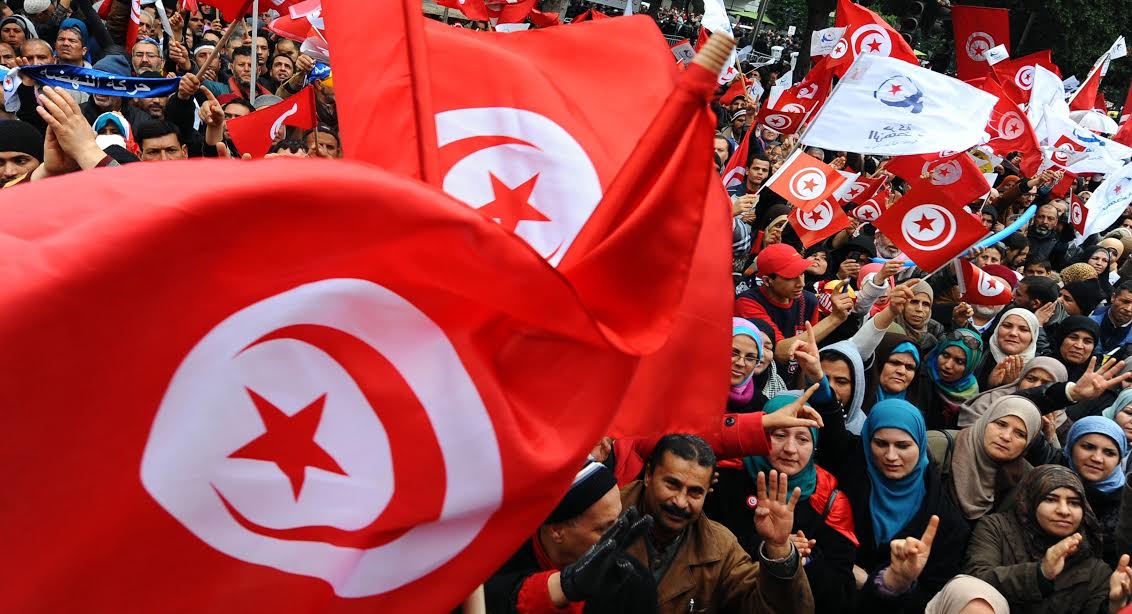|
Writing in the Arab Studies Journal, Gilbert Achcar offers a moving reflection on the meaning and tragedy of Arab Spring. His views echo those of many who participated in defeated revolutions or major reform movements—whether violent or nonviolent—of the post-World War 2 era. In reflecting on the Arab experience, Achcar says, and I quote him at length:
"The tragedy is that this wave of protests did not bring the renewal that was promised by the branding phrase 'Arab Spring,' but rather what followed were more of the old calamities, aggravated to a frightening degree in some cases. It is necessary therefore to emphasize two crucial issues regarding the sad condition under which we commemorate the sixth anniversary of the Arab uprisings. The first issue concerns a view that has spread quite understandably in the Arab region, according to which the lesson of the past six years is that the old order, despite its huge problems, was better than the revolt against it since the latter only managed to create a bigger disaster. The truth is that if we were to apply the same logic to any of the great revolutions in history, assessing them only a few years after their beginning, we would condemn them all... What started in the Arab region in 2011 actually is a long-term revolutionary process which, from the beginning it was possible to predict, would take many years, or even several decades, and would not reach a new period of sustained stability short of the emergence of progressive leaderships capable of bringing the Arab countries out of the insuperable crisis into which they have fallen after decades of rotting under despotism and corruption. This brings us to the second issue that it is necessary to emphasize on this anniversary of the uprisings. To say that the old Arab regime is better than the revolt against it is like saying that the accumulation of pus in a boil is better than incising the boil and letting the pus out. The tragedies that we are witnessing now are not the product of the uprising, but indeed the product of decades of accumulation of rot in the heart of the old regime. The 'Arab Spring' provoked the explosion of this accumulation, which inevitably would have happened sooner or later. The truth is that the longer the explosion was delayed, the more rot accumulated. If there is indeed one thing to be regretted in the Arab explosion, it is not that it happened but that it took so long to happen—so long that the old Arab order managed to achieve, to a great extent, its dislocation of Arab societies by means of tribalism, sectarianism, and various forms of cronyism, not to mention tyranny, state terror, and the lesser counter-terror provoked by governmental violence. ...The lesson that must be drawn from the recent historical experience by all those who suffer or have suffered from the Arab order that has been in place for decades—and this is the vast majority of the inhabitants of Arab countries—is rather the urgent need for an emancipatory progressive alternative to the rotten past that started to crumble six years ago, and will not cease collapsing whatever attempts to stitch it are made by its rulers. The year 2016 bears witness to this truth: it was not restricted to the tragedy of Aleppo, but started with a local uprising in Tunisia and ended with massive social mobilizations in Morocco and Sudan. The danger that threatens the Arab uprising is not the continuation of the revolution—its termination would indeed be much more dangerous than its perseverance—but the persistence of its lack of organized progressive forces capable to rise to the huge historical challenge that it faces. We are like a people that started coming out from the land of slavery and now face the threat of getting lost in the desert to be aggressed by ferocious beasts while searching for the promised land. To guide us towards this goal, we need a “modern Moses”: not a heroic individual leader but rather a collective emancipatory and democratically pluralistic project that champions the image of the new society to which we aspire." I think something important is missing in this powerful narrative. Achcar would have us see Arab Spring as a minute in the hour of revolution-making, an hour that has its reversals but moves relentlessly across the clock of history. But is it so clear that we are watching the same clock? Or, rather, is it the case that such major defeats create a vacuum on the side of “progressive forces” that requires starting anew—from the beginning of time, as it were. If that is the case, or, perhaps better, to the extent that is the case, we should have a more careful view of when to spark uprisings, a better understanding of the rootedness of our forces in the depths of the lives of everyday people, and a more conscious view of the requirements for organizing a successful revolution, before we call upon “the people” to topple existing regimes. My concern is especially focused on what happens in the United States in the wake of both the Trump and Sanders campaigns. Too much depression about the former is one danger; too much euphoria about the second is the other. We are in a period, both in the US and the world as a whole, when we need to carefully build opposition at the base of society, develop relationships between oppositional groups so that relationships of solidarity can be forged and action be taken that is aimed at the middle-levels of power, and only as a third act to a nonviolent (at least in the US) revolutionary drama attack the centers of oligarchic power that now rule the world. I share Achcar’s hope for “a collective emancipatory and democratically pluralistic project that champions the image of the new society to which we aspire.” I caution against thinking demonstrations in Tahrir Square, the Capitol Mall, Tiananmen Square, Puerta del Sol Square or its counterparts throughout the world are sufficient to reach that goal. No, the organizing task is a more complicated one than that. Everyday people and their everyday institutions (unions, centers of worship, clubs, interest groups, sports teams and more) need to own the effort so completely that society cannot move forward without their aspirations being taken into account.
2 Comments
Leave a Reply. |
AuthorMike Miller has had almost 60 years experience as a community organizer. Before founding the ORGANIZE! Training Center in San Francisco in 1972, he was a founding member of SLATE and an SNCC field secretary. In 1967, he directed one of Saul Alinksy's community organizing projects. Archives
February 2018
Categories(The quote at the top of the
page is by Desmond Tutu.) |
(415) 648.6894 [email protected] 442 Vicksburg, San Francisco, CA 94114
Copyright© Since 2016, ORGANIZE! Training Center. All rights reserved.
Copyright© Since 2016, ORGANIZE! Training Center. All rights reserved.


 RSS Feed
RSS Feed